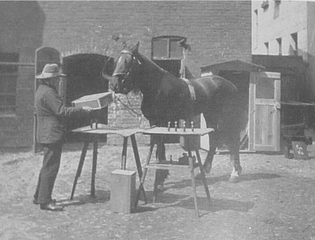Pygmalion Effect
Table of Contents

“If you live with a lame man, you will learn to limp.”
– Plutarch the Stoic

The Pygmalion effect, also known as the Rosenthal effect, is a concept developed by German-born American psychologist Robert Rosenthal and elementary school principal Lenore Jacobson. It’s a self-fulfilling prophecy where what you expect from others is what you get.
People rise or sink to your expectations of them. So powerful is the Pygmalion effect that it allowed a horse named Clever Hans to complete basic math operations by stomping his hoof.
The original Pygmalion was a legendary Greek sculptor who built a statue so beautiful that he fell in love with it. But what is the Pygmalion effect in real life?
What is Pygmalion Effect?
To put it simply, the Pygmalion effect is the sudden ability to do more, when more is expected of us. For example, a basketball player could perform much better, knowing that his teammates, coach and family expect it from him.
Pygmalion Effect in Practice
Researchers Rosenthal and Jacobson discovered the Pygmalion effect through a psychological experiment on students and teachers. Teachers were told 20 percent of students were “intellectual bloomers.” Those students, somewhat unsurprisingly, showed statistically significant improvement over the control group.
“Pygmalion In Management” demonstrates how employees, like horses and students, will similarly rise or fall to the expectations placed on them. Standards must be realistic and attainable — there’s no point in asking the impossible.
We can leverage the Pygmalion effect for ourselves by mindfully choosing the company we keep. There’s no action in being a big fish in a small pond. Rather, we should always aspire to surround ourselves with friends and colleagues who challenge us, hold us accountable, and push us towards greatness.
The Pygmalion effect raises two important questions: Do we rise to the occasion or are some simply bound for greatness? And what becomes of a civilization where there are extremely low or even no expectations from anyone?
Ultimately, though, even in a world of mediocrity we can choose greatness for ourselves by surrounding ourselves with others who also choose greatness.
Mentorship Quotes: Wise Words of Guidance
In the dynamic journey of personal and professional development, the invaluable role of mentorship stands as a guiding force, offering insights, encouragement, and wisdom to those seeking to navigate the…